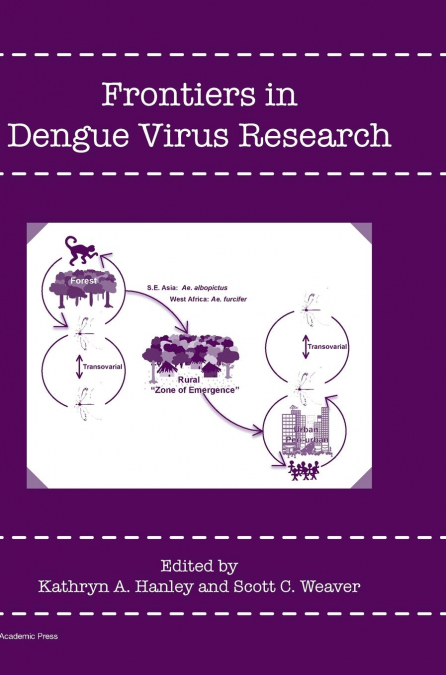
Dengue virus (DENV), a mosquito-borne flavivirus, is the causative agent of dengue fever, currently one of the most significant emerging disease challenges to global public health. Although dengue is an old disease, recent decades have seen an unprecedented increase in the geographic range, incidence, and severity of infection. The virus infects 100 million people annually and is endemic in many tropical and sub-tropical regions in the world. At present, neither a licensed vaccine nor anti-viral drugs are available to control dengue disease, prompting a plethora of research initiatives aimed at understanding the molecular and cellular virology, genomics, and evolution of this important virus. This book brings together a panel of expert dengue virologists to produce a timely review of the rapidly-expanding dengue research literature. In addition, the contributors identify the most pressing questions that remain to be answered, thus providing a stimulus for future research. Topics include: evolutionary history * epidemiology * translation and processing of the viral polyprotein * viral replication * the role of the viral untranslated regions * pathogenesis * host response to DENV * development of animal models * DENV-mosquito interactions * dynamics of dengue virus transmission * emergence of DENV from its ancestral, sylvatic cycle * vaccines * novel anti-dengue drugs * and passive immunotherapy. It is essential reading for every dengue virologist and is highly recommended for all flavivirus and arbovirus virologists.